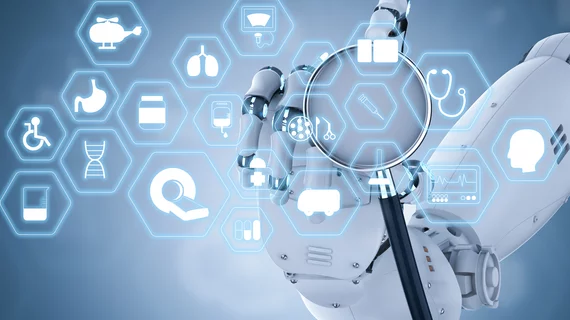AI-powered image analysis ranked 2019’s top digital health technology
According to a new ranking from Forbes, AI and its ability to help radiologists streamline image analysis represents the No. 1 digital health technology of 2019.
The list started with a survey of companies from all over the world, with each respondent being asked to “indicate the key technology which you believe will have the most profound impact on the healthcare industry during 2019.” Big data analytics was the top answer, following by AI at No. 2.
The analysis from Forbes then went one step further, exploring challenges being faced throughout the healthcare industry and determining a ranking of the most important for the entire year. The first thing on the list: “Artificial intelligence will help radiologists to create their future—not replace them!”
“Assuming a $400,000 average annual salary for a radiologist in the United States, every minute of their working time is worth $3.33, and therefore any time savings result in cost savings,” explained author Reenita Das, a Forbes contributor and senior vice president of healthcare and life sciences at Frost & Sullivan. “Any automation that alleviates redundant tasks also helps reduce radiologist fatigue (estimated to result in a 4 percent drop in diagnostic accuracy). Ultimately, this would help improve diagnostic accuracy and avoid missing opportunities for the earlier detection of disease conditions, therefore resulting in improved patient outcomes in the long run.”
Das also noted that Frost & Sullivan predicts that AI in the medical imaging industry will be a $1 billion market—or higher—by 2022.
Click below for the full story, including the rest of the article’s top five digital health technologies of 2019.

